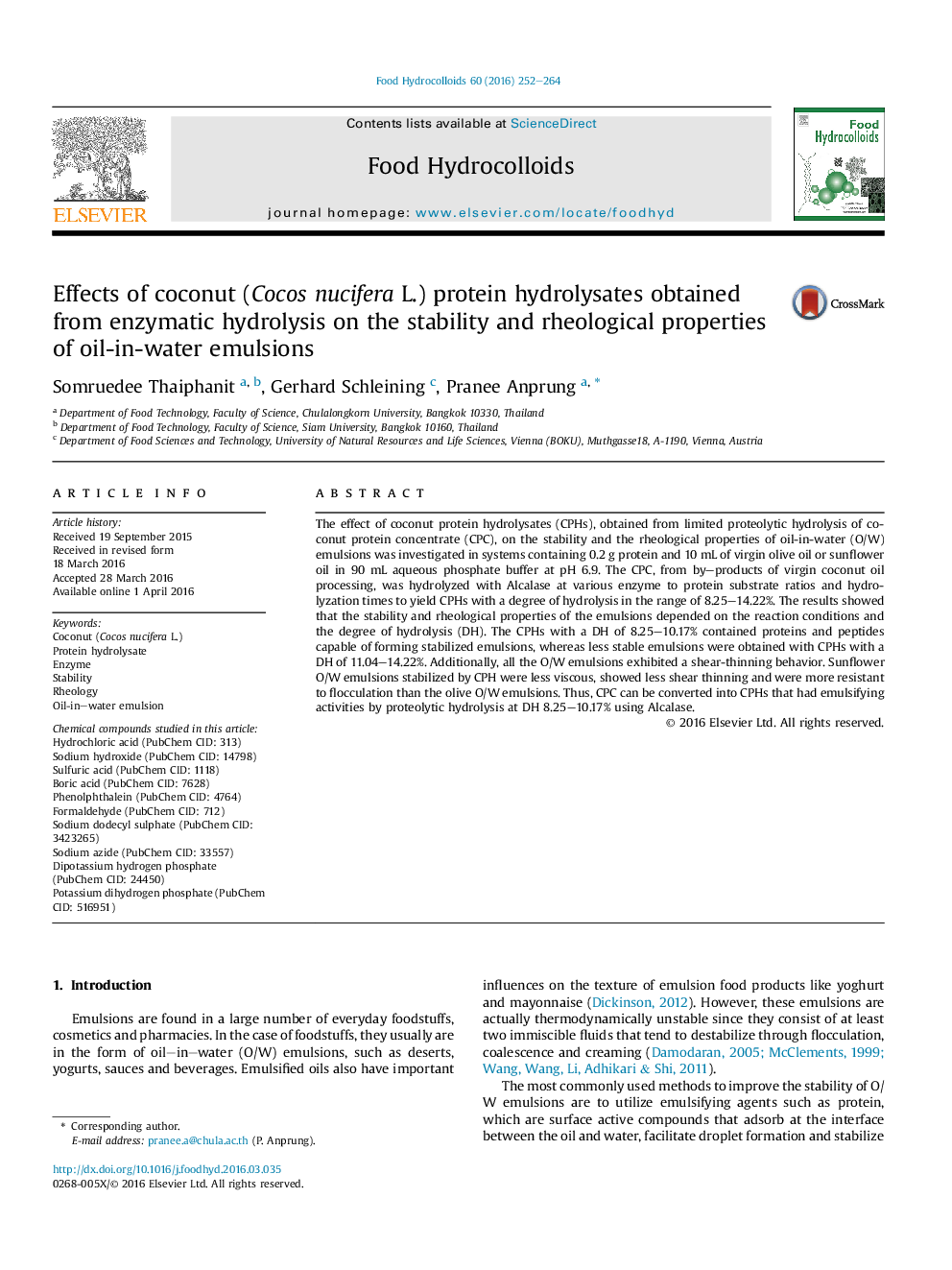| کد مقاله | کد نشریه | سال انتشار | مقاله انگلیسی | نسخه تمام متن |
|---|---|---|---|---|
| 603575 | 1454417 | 2016 | 13 صفحه PDF | دانلود رایگان |

• By-products from virgin coconut oil were used as coconut protein (CP).
• Influence of hydrolyzed CP on oil-in-water emulsion properties was determined.
• Limited enzymatic hydrolysis enhanced the emulsion stability.
• Oil phase influenced the stability and rheological properties of the emulsions.
• Emulsions with coconut protein exhibited a shear-thinning behavior.
The effect of coconut protein hydrolysates (CPHs), obtained from limited proteolytic hydrolysis of coconut protein concentrate (CPC), on the stability and the rheological properties of oil-in-water (O/W) emulsions was investigated in systems containing 0.2 g protein and 10 mL of virgin olive oil or sunflower oil in 90 mL aqueous phosphate buffer at pH 6.9. The CPC, from by–products of virgin coconut oil processing, was hydrolyzed with Alcalase at various enzyme to protein substrate ratios and hydrolyzation times to yield CPHs with a degree of hydrolysis in the range of 8.25–14.22%. The results showed that the stability and rheological properties of the emulsions depended on the reaction conditions and the degree of hydrolysis (DH). The CPHs with a DH of 8.25–10.17% contained proteins and peptides capable of forming stabilized emulsions, whereas less stable emulsions were obtained with CPHs with a DH of 11.04–14.22%. Additionally, all the O/W emulsions exhibited a shear-thinning behavior. Sunflower O/W emulsions stabilized by CPH were less viscous, showed less shear thinning and were more resistant to flocculation than the olive O/W emulsions. Thus, CPC can be converted into CPHs that had emulsifying activities by proteolytic hydrolysis at DH 8.25–10.17% using Alcalase.
Figure optionsDownload as PowerPoint slide
Journal: Food Hydrocolloids - Volume 60, October 2016, Pages 252–264